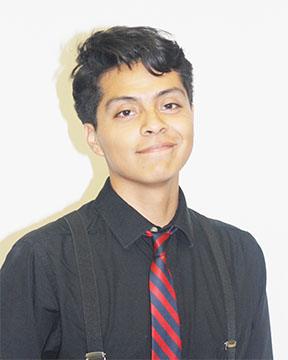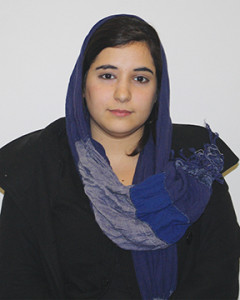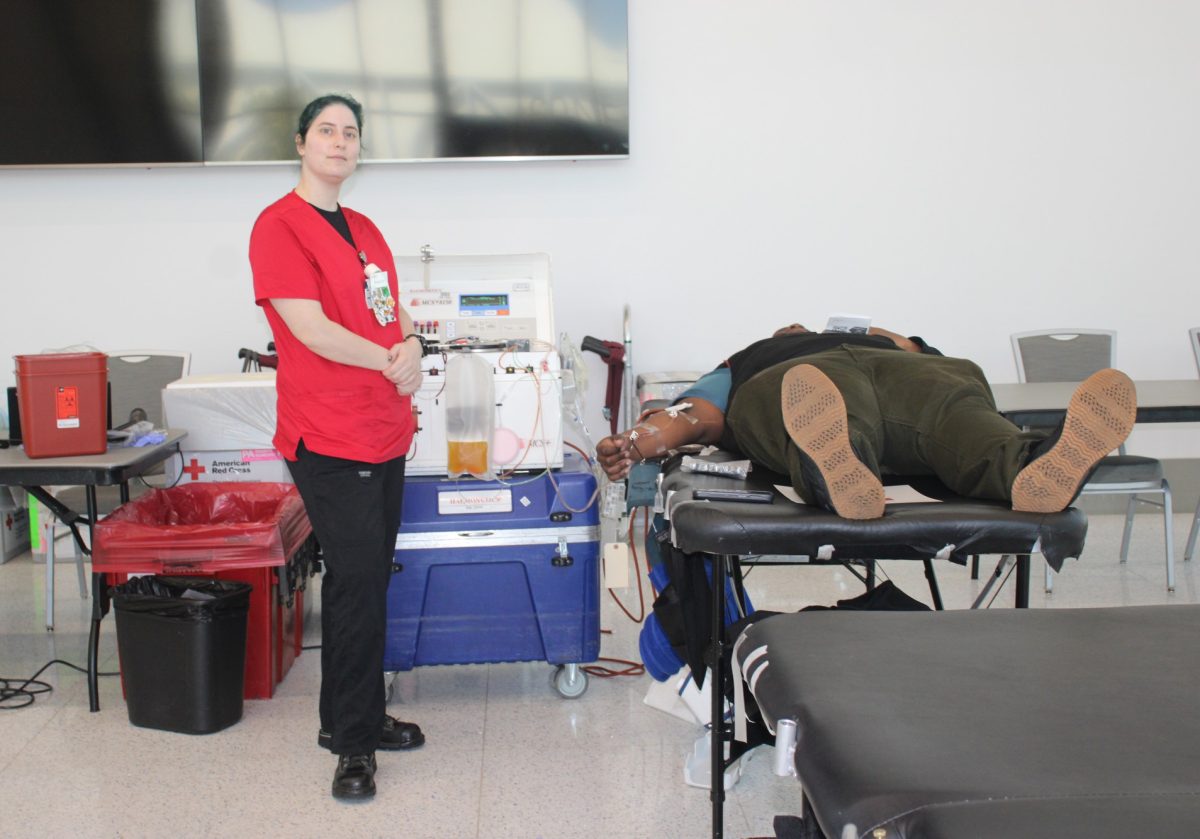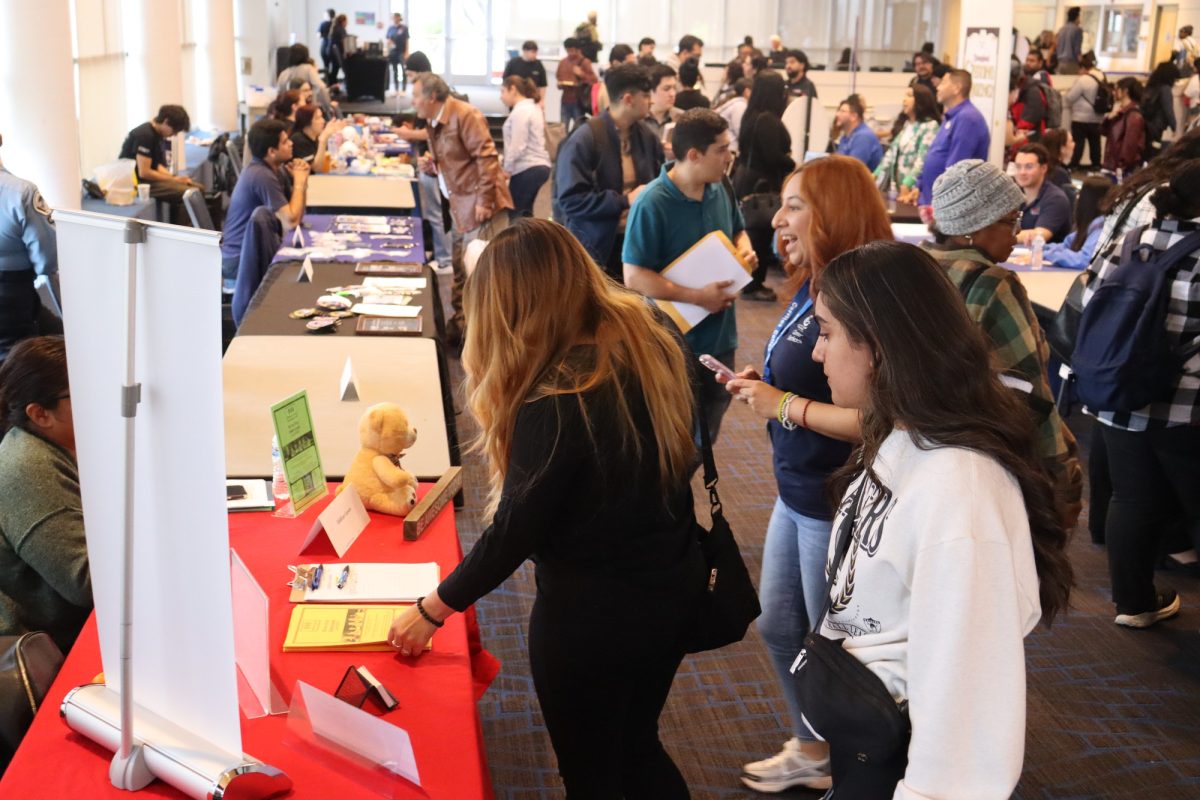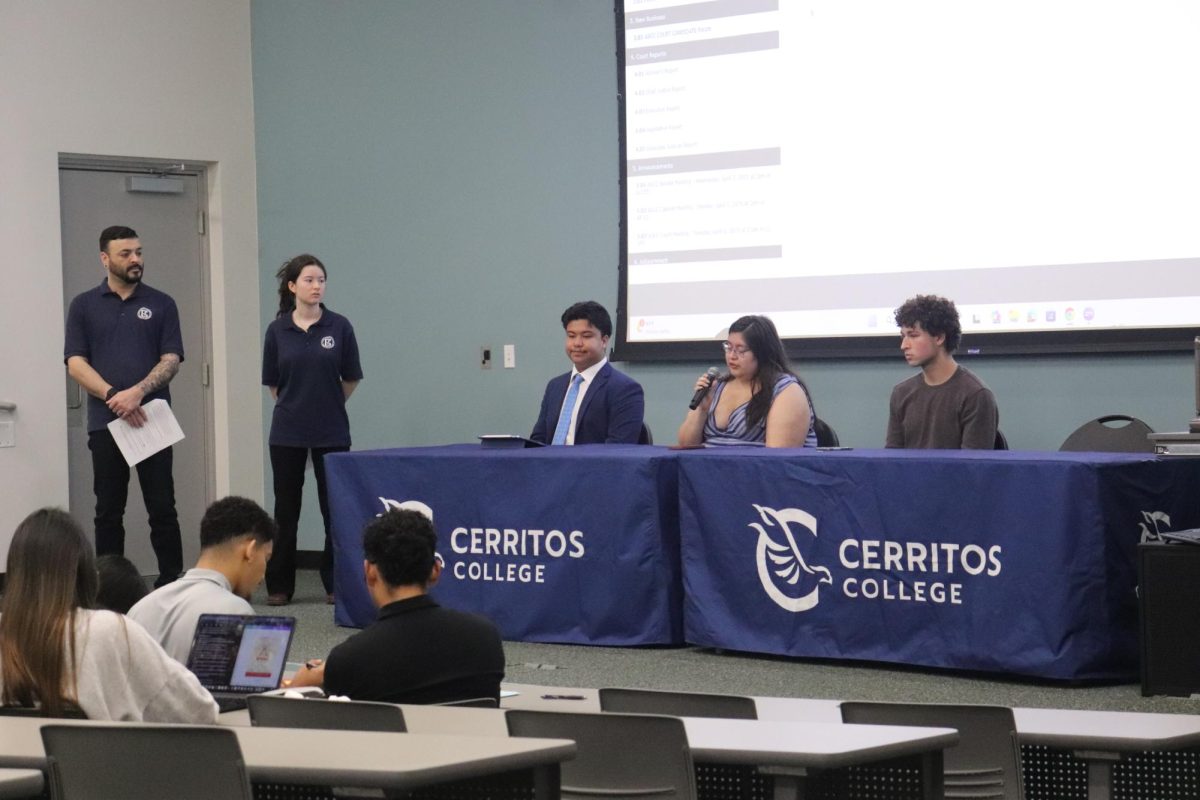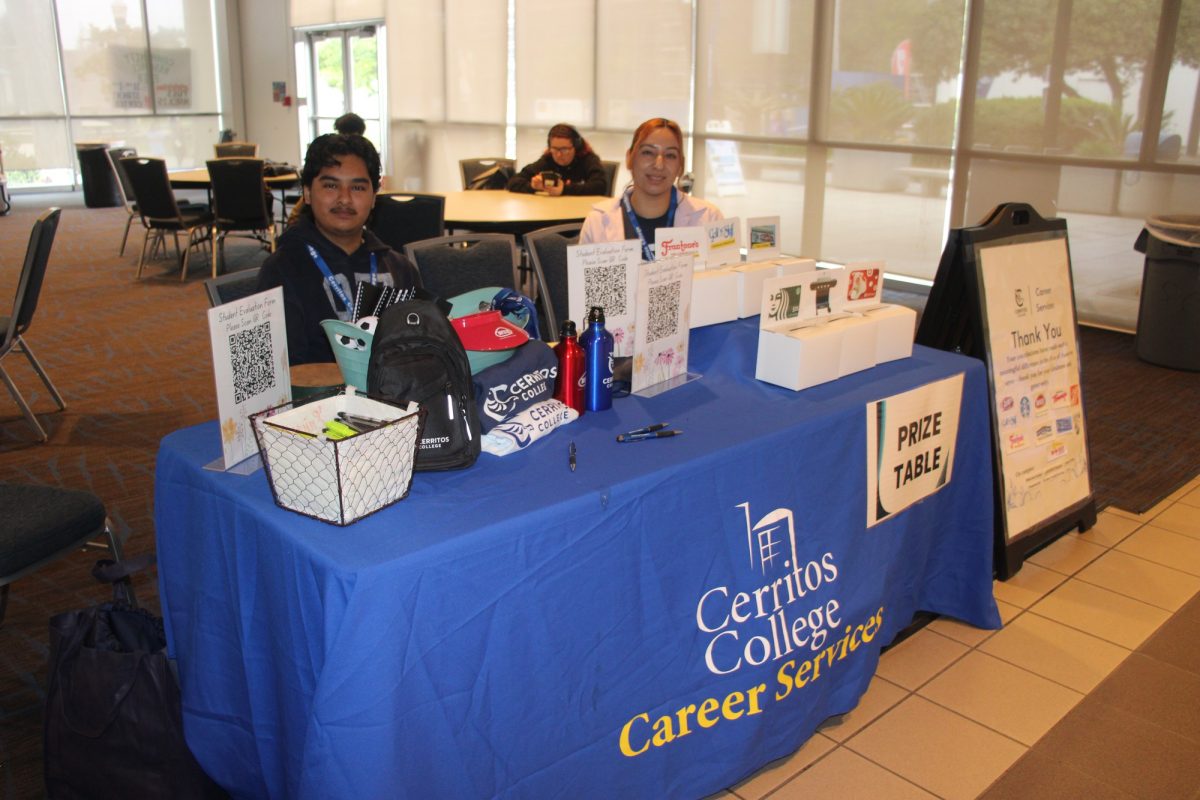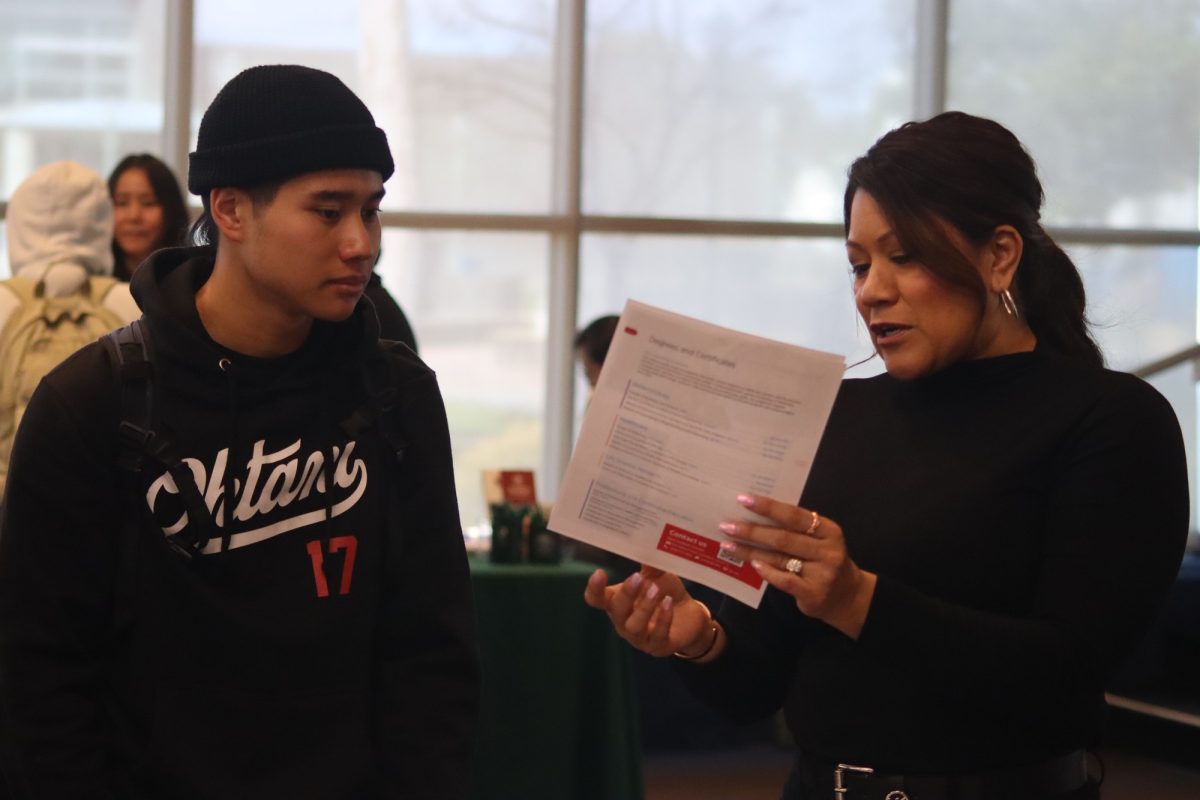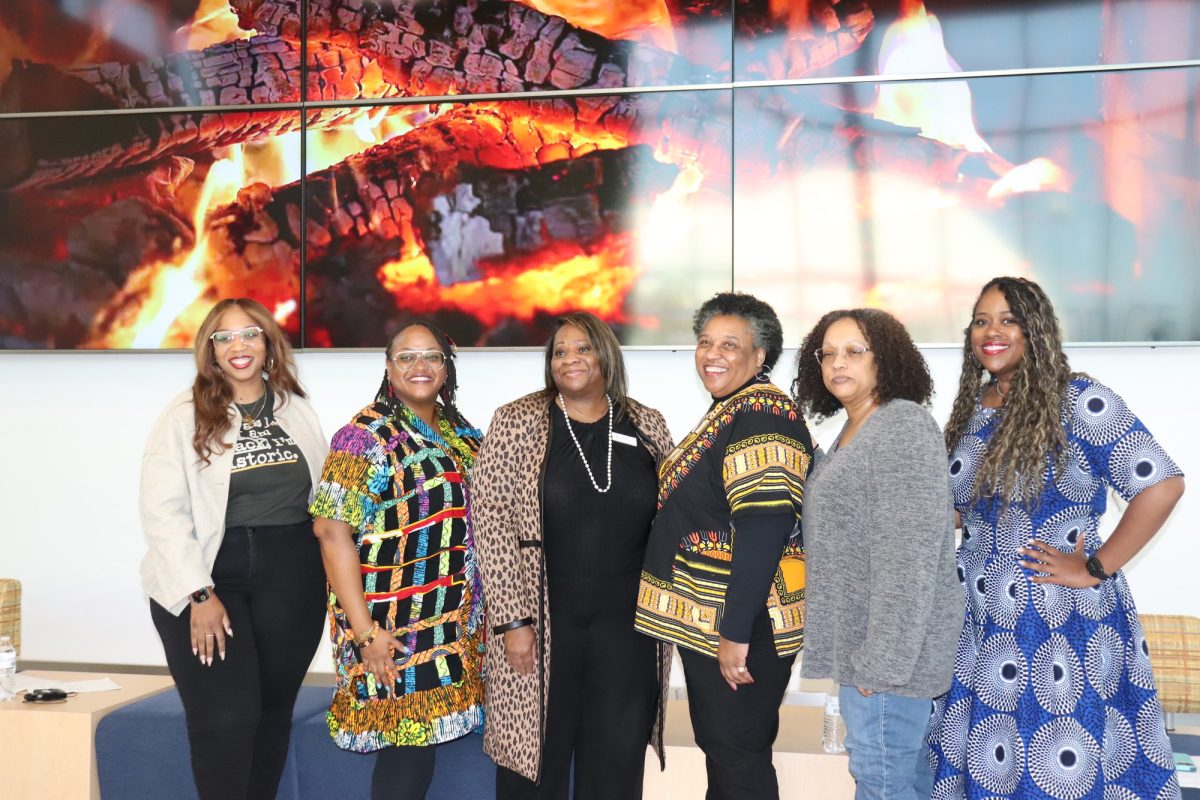Cerritos College students assume that when an emergency arises, they will help without hesitation, but as Professor Kimberley Duff’s social psychology class demonstrated, not everyone is willing to help a stranger in need.
Duff’s class was assigned a final group projected in which her students had to apply the psychology applications in the real world.
“It is fantastic… it’s called an action learning project where basically they have to take concepts from the field of social psychology and actually implement them out in the field, out in the real world,” said Duff.
A secondary objective of the project was to take that data and educate people on their results, in order to educate the Cerritos students and achieve a positive result.
Fatima Akilo, psychology major and Bruce Rainay, sociology major, choose to demonstrate pro-social behavior and conversely, the bystander effect.
“The main idea of the project was to pick a topic that was relevant to the campus, the community and try to make positive change,” Akilo said.
“We felt that being safe and knowing that your chances of receiving help are high on campus is important,” Akilo added.
The bystander is a behavior that happens when there is an emergency or someone in need; the more people there are around the less likely to receive or give assistance. This is because many people see a crowd and believe that “someone in the crowd will help, I don’t have to help.”
This is called defusing of responsibility, according to Rainay.
The group staged a scenario in front of the student bookstore where a student would drop change and see how many people would help or not help. The group would then interview the people who noticed, helped or didn’t to gather real data.
Of the 67 participants, both female and male, the percentage of those who helped were 61 percent and those who did not were 37 percent. Only one person did not notice the scenario. Out of the 67 participants, 43 percent were male and 56 percent were female.
“On the central grounds, we introduced the information to people around campus, in the classrooms. We had a total of 39 people we handed out pamphlets to,” Akilo said.
“It was very interesting. I think the project was good and it was interesting,” Rainay said.
Akilo hopes that the project will bring awareness to this problem and that students who were faced with an emergency would take personal responsibility and render assistance.
“Research shows that if you educate people about these concepts and about these obstacles and challenges, then people will be more vigilant. They’ll be more conscious about stopping and providing assistance.”
“Especially in a campus environment, it’s really important because if people are more likely to stop and ask people if they need assistance it make it [Cerritos College] have more of a community feel,” said Professor Duff.





